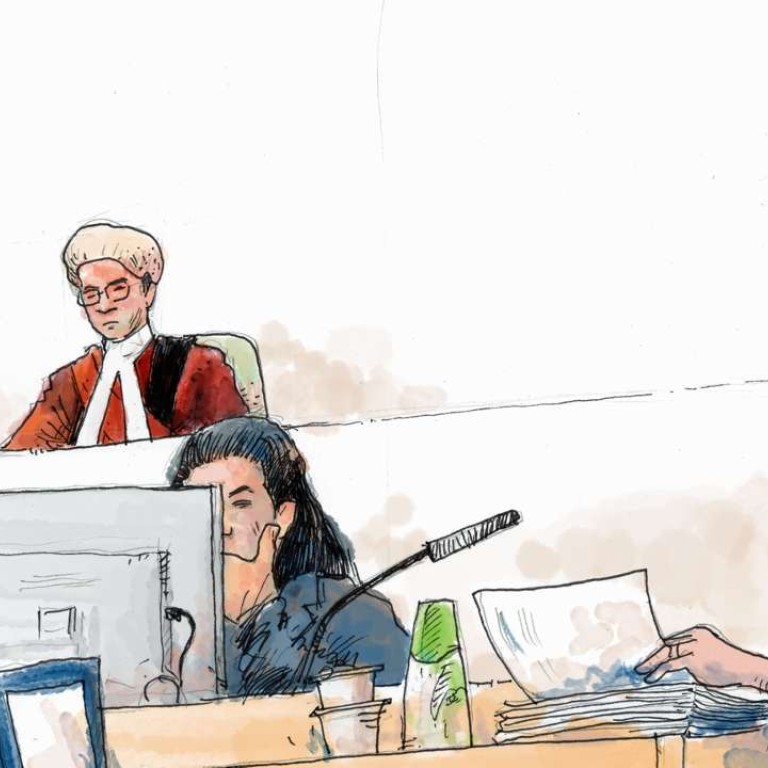
Carrie Lam calls Donald Tsang her ‘role model’ at former Hong Kong leader’s corruption trial
Former city leader exerted no pressure to nominate interior designer for award, chief executive contender testifies
Lam – briefly stepping away from her campaign to testify at the High Court – said that in 2011 the Development Bureau she then headed received a suggestion from Tsang’s office that interior designer Barrie Ho Chow-lai be given a medal of honour.

Tsang, 72, is accused of concealing his ties with Ho, whom he paid HK$350,000 to carry out HK$3 million worth of work at the penthouse, which he intended to rent after retiring in 2012.
Tsang is accused of abusing the city’s honours and awards system by nominating Ho for a medal without telling Lam’s bureau about the work on the penthouse, which the court heard earlier was a 6,700 sq ft flat fitted with a landscaped garden and library.
Mr Tsang was very committed to public service and has been my role model in my career as a civil servant
Apart from Ho, who was awarded the medal in 2011, Lam also nominated architect Rocco Yim Sen-kee for an award in the same year at Tsang’s suggestion, the court heard.
Testifying for the first time yesterday, Lam said she had no knowledge of Ho’s work for Tsang when she was asked to nominate the designer in 2011.
But she said she would have awarded him the medal even if she had known.
“I make my own judgments,” Lam said, adding that Tsang had not exerted any pressure on her.
“Nominations are made on individual merit,” she replied, when asked by presiding judge Mr Justice Andrew Chan Hing-wai.
“Mr Tsang was very committed to public service and has been my role model in my career as a civil servant,” Lam said, when prompted by Tsang’s barrister, Clare Montgomery QC, to offer an assessment of her former boss.
“I worked with Mr Tsang for a rather long period,” Lam added, recalling her days as the secretary for development in Tsang’s cabinet, until she later rose to the rank of chief secretary following Tsang’s retirement.
Yesterday it emerged Tsang had exercised his “prerogative” to nominate a person, not identified in court, for a Grand Bauhinia Medal (GBM) in the same year he proposed nominating Ho.
The court heard that the normal procedure would involve the bureaus sending nominations to a selection committee – at the time chaired by then chief secretary Henry Tang Ying-yen – for consideration.
The committee, under the Protocol Division, would then recommend a shortlist of potential awardees to the chief executive for final approval.

But a court document showed yesterday that Tsang at a late stage had added an extra name to the GBM category that year next to the original two recommended by the committee.
It was not specified whether the person was awarded the title, but it aroused the judge’s curiosity. “Can [the chief executive] at the very end of the process, out of the blue, all of a sudden add: ‘This gentleman should be given the GBM’?” Chan asked.
Former director of administration Jennifer Mak Yee-ming, a prosecution witness, testified that the chief executive indeed had such a “prerogative” to bypass the bureaus and committee.
Additional reporting by Julia Hollingsworth


